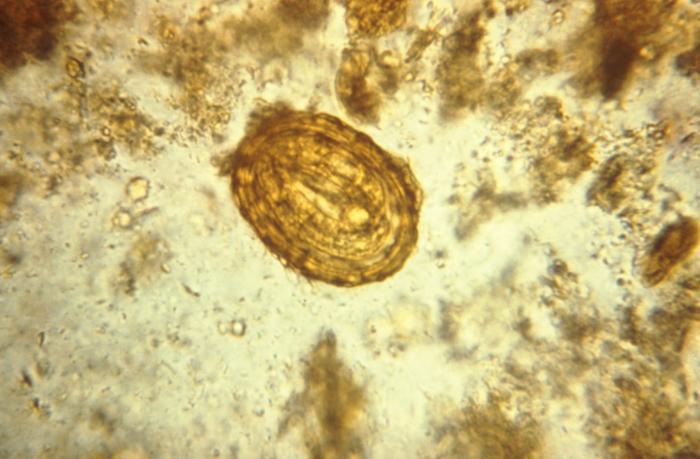Different agents are used to avoid unplanned pregnancy, for better family planning. These are agents which mainly contain hormone components within preparations and may be administered orally, in form of injectables or implant preparations.
These are the most widely used agents throughout the world, as are very affordable, convenient and easy to use.
Sex hormones
- Estrogen
- Progesterone
- Other sex hormones
During reproductive years, radical changes occur under the influence of these hormones in ovaries and female sexual organs. This rhythmical pattern of menstrual cycle usually consists of 28 days. On around 14th day, under influence of follicle stimulating hormones and lutenizing hormones, ovulation occurs.
Contraceptives were designed to resemble FSH and LH, causing inhibition of ovulation so that fertilization and pregnancy do not occur.
Types of Oral Contraceptives
Combination Oral Contraceptives
It contains an estrogen & progestin
Estrogens Used:
- Ethinyl – Estradiol
- Mestranol
Progestins Used:
- Levonorgestrel
- Desogestrel
- Norgestimate
- Norethindrone
All preparations come as 28 day packs. Pill is taken daily for 21 days starting on the 5th day of menstruation.
Phased Regimens
a. Monophasic
b. Biphasic
c. Triphasic
Contain a fixed amount of estrogen and are very effective available as 28 day calendar packing, 1 tablet is taken daily for 21 days without interruption, whereas the next 7 tablets are placebo (pill free period). After 28 day intake, prompt bleeding occurs. Ideally started at 5th day of menstruation.
Biphasic/triphasic preparations
Preparations in which estrogens are present in fixed dose, progestins may vary with the type of preparation. 235 mcg estrogens are present in biphasic and triphasic preparations given for fixed interval during 28 day cycle. One tablet daily for 28 days, last 7 days placebo.
In biphasic preparations, one tablet is taken initially for 10 days, another type for 11 days, followed by 7 tablets.
In triphasic preparations, depending on type of preparation, one regiment tablet is taken for first 7 days, another for 8-15th day/16-21 day, followed by 7 placebo tablets.
Biphasic and triphasic preparations are ideal for females over 35 years of age, having pre-disposing factors. In 2003, FDA approved other preparations, these are:
SEASONALE:
Norgestrel-ethinyl estradiol
1 tab for 84 days without interruption followed by 7 placebo, menstrual bleeding occurs every 13th week
LUNELLE:
Medroxyprogesterone-estradiol cypioate inj. (every month)
ORTHO EVRA:
Ethinyl estradiol-norelgestromin (patch) (weekly)
NUVARING:
Ethinyl estradiol-etonogestrel (vaginal rings)
Progestin only Contraceptives (Minipill)
Only progestin is present, no estrogen, in order to discard side effects of estrogen to make more tolerable. A low dose progestin only pill is taken daily continuously without any gap (mostly oral)
- Norethindrone (350µg) or
- Norgestrel (75µg).
Taken without any interruption.
Implants
- Norgestrel subdermal implants 216mg
I/M only preparations
Medroxyprogesterone acetate IM 150mg
Slow release contraceptive, effective for 5 years subdermally. I/M as long as 3 months.
Intrauterine Device
Contain progestin component, 2 preparations are available:
PROGESTASERT:
Progesterone
MIRENA:
Levonorgestrel
Available for yearly basis, effective as long as 5 years.
Efficacy of estrogens only preparations is very high (99%), intrauterine devices have an efficacy of 70-80%. Progestin only preparations cause inhibition of ovulation for as long as 14 weeks, long acting ones may inhibit for 18 months.
Those who plan pregnancy soon after taking off pill, may fail to get pregnant. Minipill is not advisable for early pregnancy on discontinuation, may be inhibited for weeks or months (up to 18 months)
Adverse Drug Reactions
- Irregular bleeding
- Spotting
- Amenorrhea
- Besides nausea, vomiting, headache, dizziness, restlessness, leg cramps, abdominal cramps
Injectables
Long acting progestin alone
- Depot medroxyprogesterone acetate (DMPA) 150mg at 3 months interval.
- Norethindrone enanthate (NEE) 200mg at 2 month intervals.
Progestin Implant Method
- Progestin capsule (Etonogestrel)
Long acting progestin + long acting estrogen
- MPA + estradiol cypionate IM every month.
Potential adverse effects of implants
- Surgical insertion/surgical removal with irregular bleeding
- Headache
- Dizziness
- Weight gain
- Decreased host tolerance
- Intracranial hypertension
Post coital Contraceptives
Also popularly known as morning after contraceptives, used in emergency situations like rape victims or if want to avoid pregnancy. Said to be effective 72 hours, 2 doses are ideally taken 12 hours apart.
- Two doses of Minipill at an interval of 12 hours (0.75mg Levonorgestril per pill).
- Two pills of a high dose oral contraceptives at an interval of 12 hours( 0.25mg of Levonogestrel + 0.5mg of Ethinylestradiol per pill ).
- Ethinyl estradiol: 2.5mg BD x 5 days
- Diethylstilestrol: 50mg daily x 5 days
- Mifepristone: 600mg OD+Misoprostol 400µg OD
40% of females have nausea and vomiting with these drugs, so antiemetic must be administered with them. Other side effects include leg cramps and breast tenderness.
Mechanism of action
- Inhibition of gonadotropin release from pituitary by reinforcement of negative feedback inhibition, thus FSH, LH synthesis and release is controlled.
- Progestin is decreased and ovulation is inhibited
- Secretion of thick cervical mucus secretion which becomes hostile for sperm, and is inhibited
- Failure of blastocyst to implant.
- Uterine and tubule contraction.
- Dislodgment of just implanted blastocyst.
Adverse Effects
Mild adverse effects:
1. Nausea, edema, break through bleeding –due to estrogen component, switch to less estrogen more progesterone
2. Headache
3. Migraine –stops after use for some time
4. Breast discomfort –progestin only more common
5. Changes in serum proteins –estrogen type prep, alpha 2 globulin, fibrinogen levels increase
6. Failure of withdrawal bleeding –seen in combination preparations, progestin only and some other, this effect may be inhibited
7. Confusion
Moderate Effects:
1. Break through bleeding –biphasic, triphasic decrease chances
2. Weight gain, with combination preparations and and progestin type
3. Hyper pigmentation –common, highly sensitive to UV light or dark skinned, vitamin B deficiency, reversible process
4. Acne
5. Hirsutism –those preparations having 19 nortestosterone
6. Uretral dilation –usually at time of labor
7. Vaginal infection –very difficult to treat
8. Amenorrhea –may be seen in irregular menstrual cycle, if does occur, prolactin levels are assessed.
Severe adverse effects
1. Venous thromboembolic disease –increased chances of altered clotting factors, genetic alteration of homocysteine, decreased venous blood flow, endothelial preparations
2. Myocardial infarction –incidence is increased in females above 35 years, obese, diabetic, HTN, cardiac disease or smokers having higher chances of erythrogenesis
3. Cerebrovascular disease –esp. migraine history
4. GIT
a. cholestatic jaundice
b. cholangitis
c. cholilithiasis
d. hepatocellular carcinoma
e. hepatic adenoma
Chronic adverse effects are seen due to increased levels of cholic acid with bile acids.
5. Depression -reversible
6. Cancer –decreased incidence of ovarian and endometrial cancer
In breat cancer, beneficial effects are not achieved.
7. Alopecia, skin lesions –erythema nodosa and other manifestations
Contraindications
- Hypertension & Hyperlipedemia
- Thromboembolism
- Diabetes mellitus
- Heart disease/ failure
- Liver disease
- Migraine/ headache
- Cerebrovascular disease
- Optic neuritis
Drug Interactions
1. Enzyme Inducers
- Phenytoin
- Primidone
- Carbamezipine
- Rifampin
2. Suppression of intestinal microflora
- Tetracyclins
- Ampicillins
Noncontraceptive Uses
- Regular Menstration
- Less iron deficiency anemia & rheumatoid arthritis
- Reduced menstrual blood flow
- Reduced incidence of pelvic inflammatory disease & ectopic pregnancies, endometriosis
- Reduce incidence of Cancer (15%)
 howMed Know Yourself
howMed Know Yourself





I must tell you that it’s hard to find your articles in google,
i found this one on 20 spot, you should build some quality
backlinks in order to rank your page, i know how to help you, just search in google – k2
seo tips